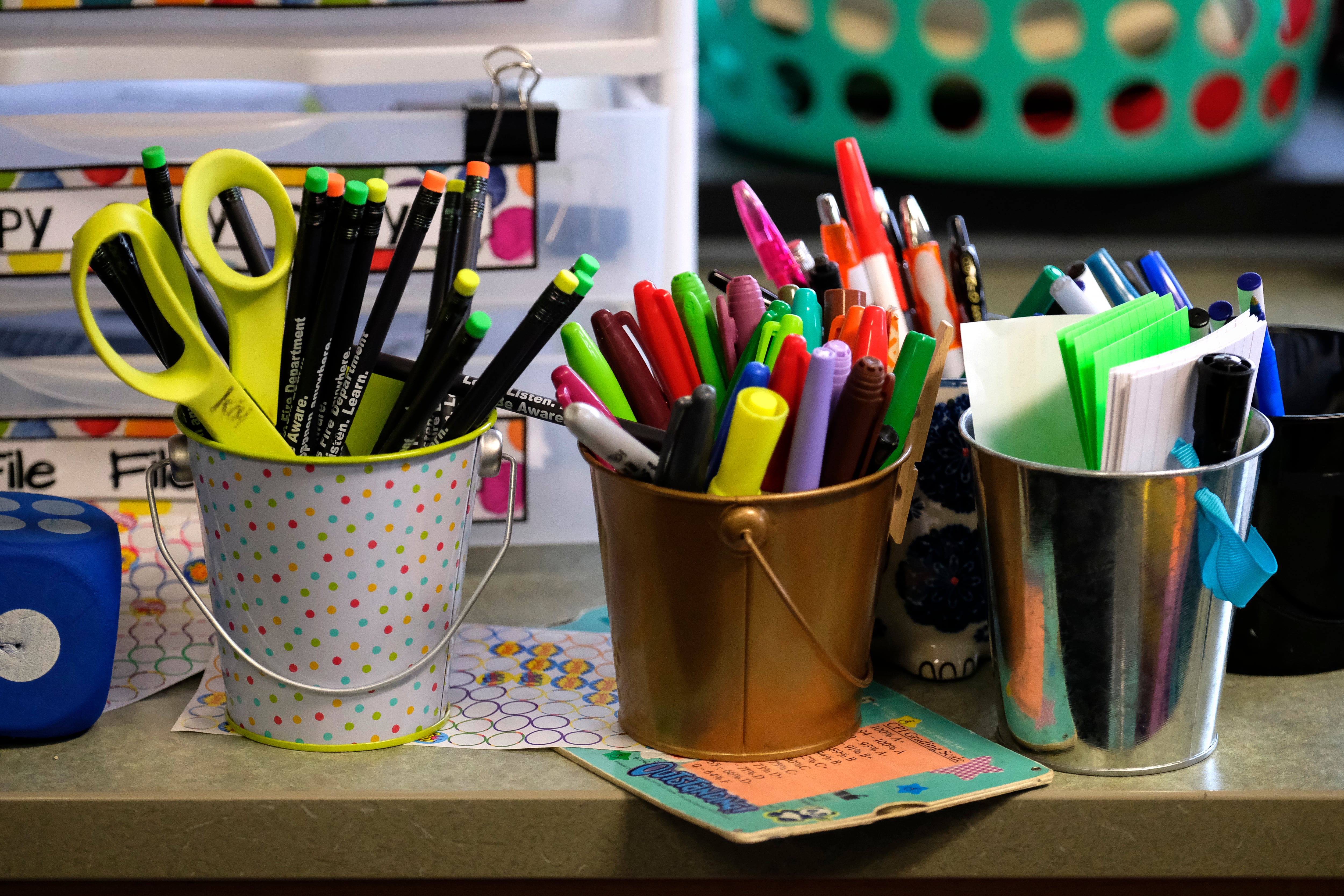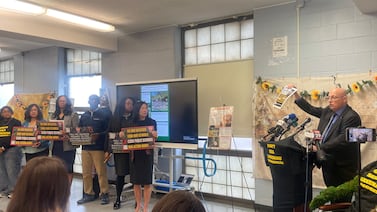Gov. Eric Holcomb proposed modest increases in K-12 funding over the next two years on Wednesday, in line with the hope that Indiana schools could still receive more state support despite the pandemic’s economic effects.
But Holcomb made no specific budget proposals for raising teacher pay, a key issue that has been building for years.
The overall funding increases could suck up dollars that Holcomb originally intended to go toward teacher pay. Last year, he promised to use the state’s surplus to free up funds that he wanted to translate into raises, but he put the pledge on hold once the pandemic hit.
Now Holcomb is using the strategy to make room in the budget for his proposed 2% increase in K-12 funding next year and an additional 1% bump the following year.
Holcomb plans to pay down $400 million of the state’s obligation to a teacher retirement fund, which he expects to save the state money in the long run and free up about $69 million per year that would otherwise have gone toward the pension payments.
“All ongoing funding increases have gone toward education,” said state budget director Zachary Jackson, “and essentially everything else has been shuffling of existing dollars.”
Holcomb’s proposal is just a first step in this year’s budget-writing process. House and Senate lawmakers will each craft their own version before settling on the final budget by the time the legislative session ends in late April.
In 2019, lawmakers increased K-12 funding by 2.5% each year of the two-year budget. Last month, after the state revenue forecast remained stable despite the pandemic, leading lawmakers said they hoped to boost school funding this budget cycle, but they have yet to commit to increases.
Raising teacher pay could cost hundreds of millions of dollars — a bill that this budget cycle seems unlikely to cover. Holcomb and Republican leaders have supported calls to increase average salaries to $60,000 but have offered few solutions so far, saying they need to review the recent recommendations of Holcomb’s teacher pay commission.
Cris Johnston, director of the Office of Management and Budget, said there’s no “one silver bullet” to raising teacher pay.
“It’s going to take some time to get there,” Johnston said. “Some of these things we’re doing, I think frees up the opportunity to look at those appropriations in future years.”






